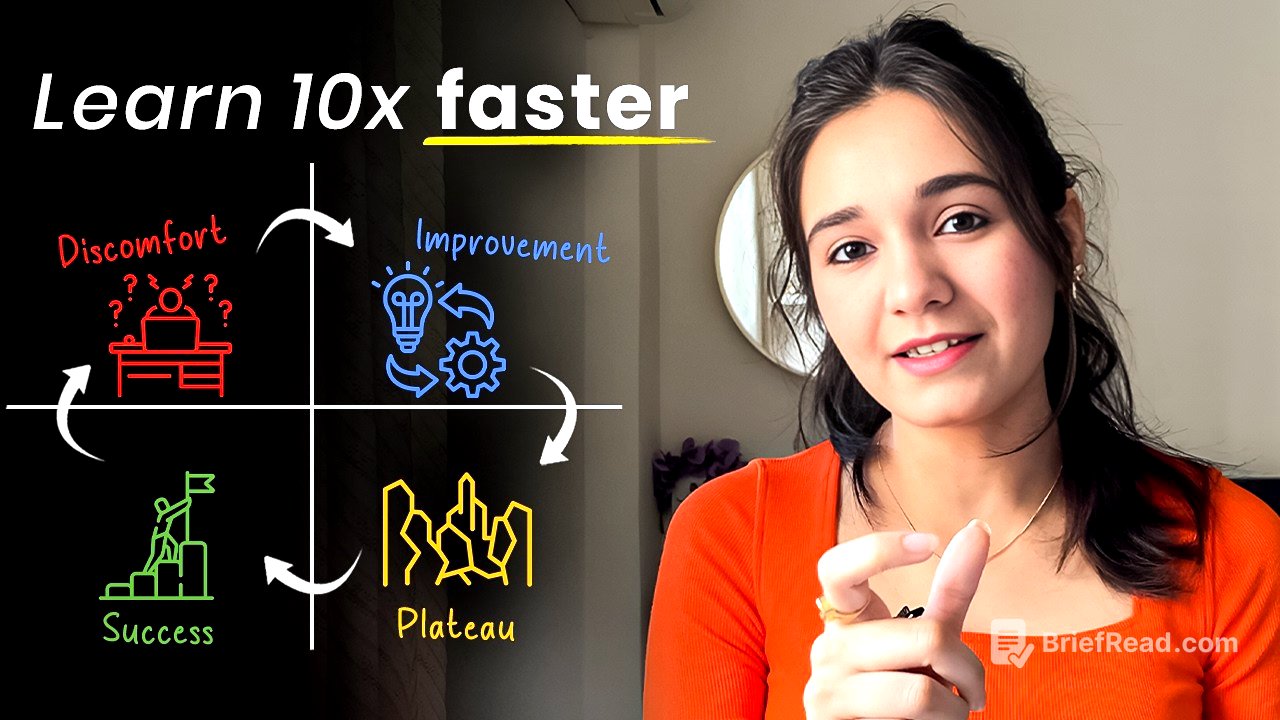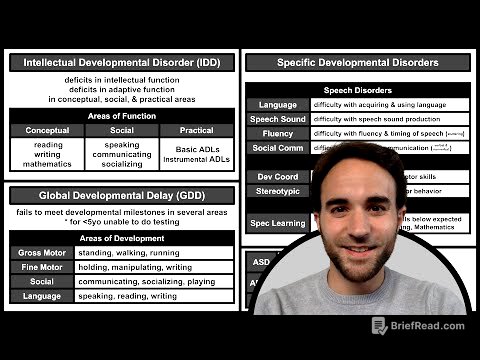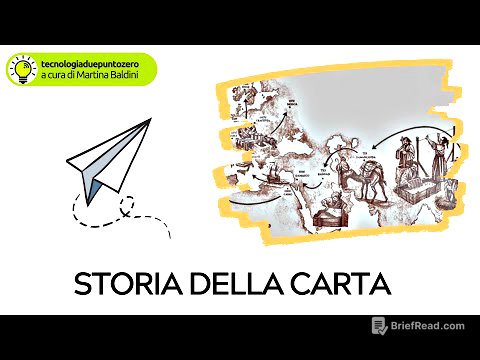TLDR;
This video provides strategies for accelerating the learning process, emphasizing the importance of understanding how the brain reacts to new information and adopting effective learning methods. It covers neuroplasticity, dopamine's role in motivation, and the four stages of learning. The video also shares five practical tips: applying the 80-20 rule, teaching others, seeking feedback, shifting one's identity, and embracing discomfort as a sign of growth.
- Understanding the neuroscience of learning and the role of neuroplasticity and dopamine.
- Applying the 80-20 rule to focus on efforts that yield the most results.
- Teaching others to reinforce learning and identify gaps in understanding.
- Seeking feedback to accelerate improvement and correct mistakes.
- Shifting one's identity to foster a growth mindset and overcome limitations.
- Embracing discomfort as a necessary part of the learning process.
Intro [0:00]
The video introduces the concept of meta-learning, which is described as an efficient way to learn that separates successful people from average people. The content aims to provide valuable insights for individuals in various stages of life, including students, self-employed individuals, and corporate employees, emphasizing that learning is a continuous process. The video promises to share tips and tricks to train the mind and speed up the learning process.
How does your brain behave when you learn new things [0:58]
When learning a new skill, the brain's neurons connect, and repeated practice strengthens these connections through a process called neuroplasticity. This is similar to how muscles grow with exercise. Dopamine, responsible for the brain's reward system, is released when progress is made, which sustains motivation. However, slow progress can decrease dopamine release, leading to demotivation and the tendency to give up.
Stages of Learning you need to know [2:10]
Learning any new skill involves four stages: discomfort, improvement, plateau, and success. The initial discomfort arises from learning the basics, requiring a push to move forward. The improvement stage brings enjoyment and high confidence as progress is made, fueled by dopamine release. The plateau stage involves refining skills and correcting mistakes, which can be frustrating and reduce dopamine levels. Overcoming the plateau requires remembering the initial motivation and intention. The final stage is success, but achieving mastery requires repeating the cycle.
But how to not Give Up on learning a skill? [3:29]
Many people give up after hitting the plateau stage due to decreased dopamine release. While it's easier to abandon skills that don't seem interesting, education and career-related skills require persistence. To speed up the learning process and avoid giving up, it's important to employ specific tactics.
1/Effectively ese the 80-20 rule [4:02]
The 80-20 rule suggests focusing on the 20% of efforts that yield 80% of the results. For example, when learning a new language, focus on the 1,000 most common words used in daily conversations rather than 10,000 random words. This approach emphasizes smart work over hard work, identifying shortcuts to achieve more with less effort. Applying this rule effectively involves understanding where to direct the 20% effort to maximize results and avoid unnecessary struggles and wasted time.
Journal prompts to know your WHY [7:08]
To effectively apply the 80-20 rule, it's crucial to have a clear intention or "why" for learning a skill. This involves understanding the reasons behind learning the skill, whether it's for personal growth or to achieve a specific goal. Strong intentions are internal, such as learning coding to secure a good job and provide for family, with money being a byproduct.
2/Short term vs long term memory [7:15]
The brain has short-term and long-term memory. Short-term memory is temporary, with less important information being deleted nightly. Long-term memory stores information that is consciously practiced and repeated, signaling its importance for survival. Teaching others is an effective way to reinforce learning and move information from short-term to long-term memory. By explaining concepts to others, one can identify gaps in their own understanding and improve their learning process.
3/Taking feedbacks is important [8:49]
Seeking feedback is crucial for accelerating skill acquisition. Real-time feedback helps identify mistakes and track progress, enabling faster improvement. A mentor or guide can significantly reduce the time and energy required for self-improvement. Selecting a teacher who aligns with one's intentions and actively asking questions are essential for receiving valuable feedback.
4/Shift your identity to be a better learner [10:33]
Shifting one's identity is essential for becoming a better learner. Instead of thinking, "I can't learn new skills," adopt the mindset of someone who believes they can learn anything they set their mind to. This involves creating a mental image of oneself as capable and determined. The brain works on the basis of evidence, so celebrating small wins and acknowledging achievements helps reinforce a positive identity.
5/Have courage to feel worse to become strong [12:52]
Embracing discomfort is a sign of growth. Feeling like a worse person during the plateau stage is a necessary part of the learning cycle. Pushing through uncomfortable situations and pressures leads to future success. This principle applies not only to learning new skills but also to life in general.
Summary of the video [14:20]
The video concludes by summarizing the five tips for accelerated learning: applying the 80-20 rule, teaching others, seeking feedback, shifting one's identity, and embracing discomfort. The key is to intentionally change oneself internally, ensuring that the "why" is clear and working on oneself to make the learning process a one-time, effective endeavor.









